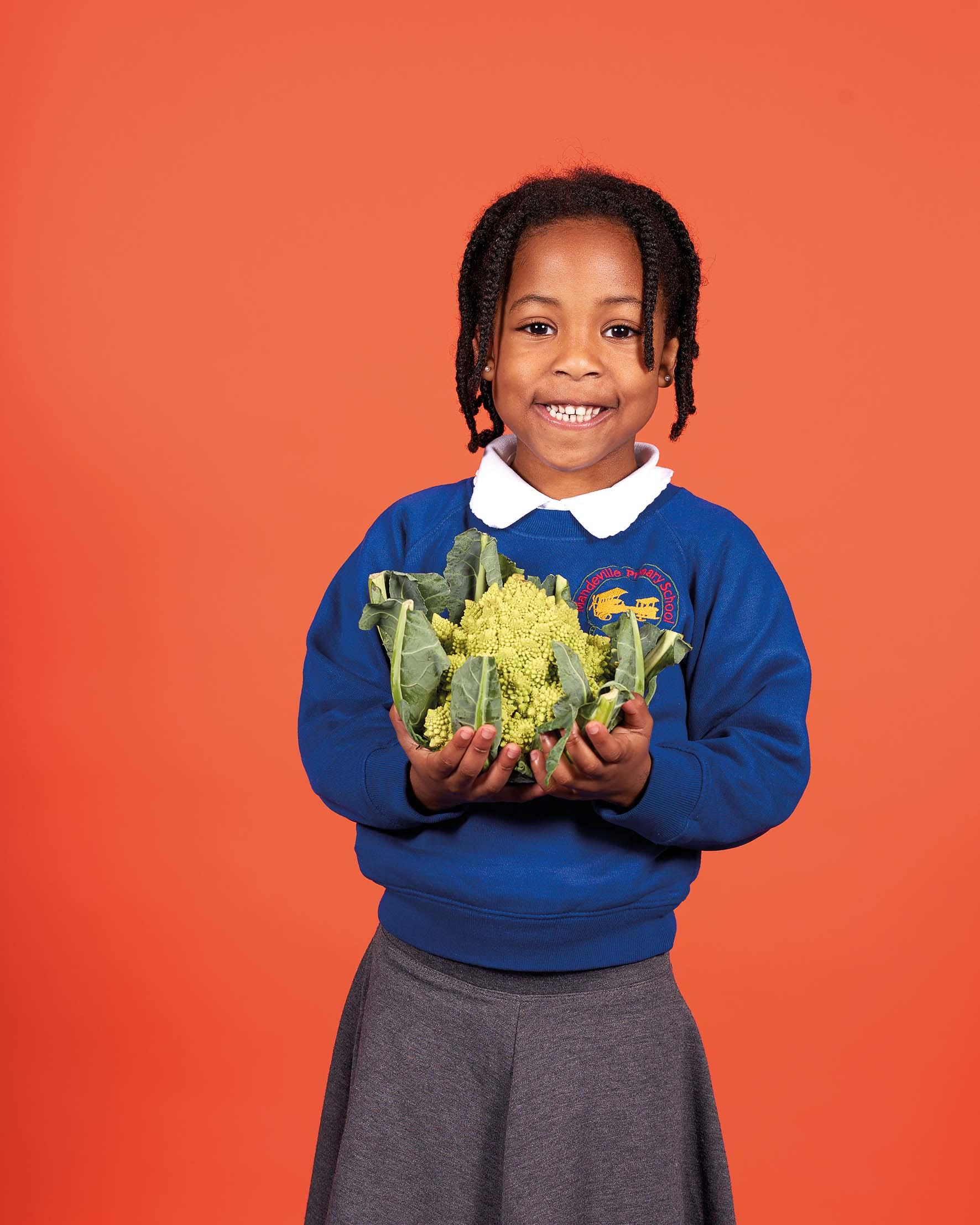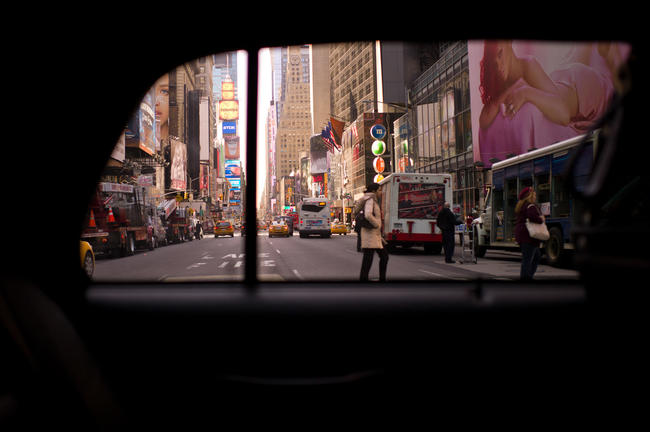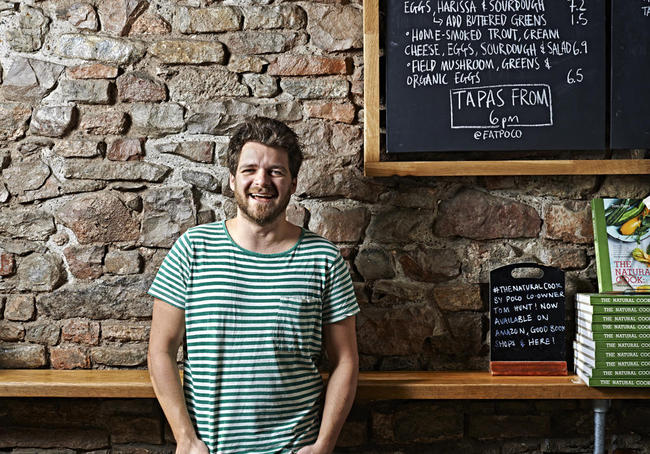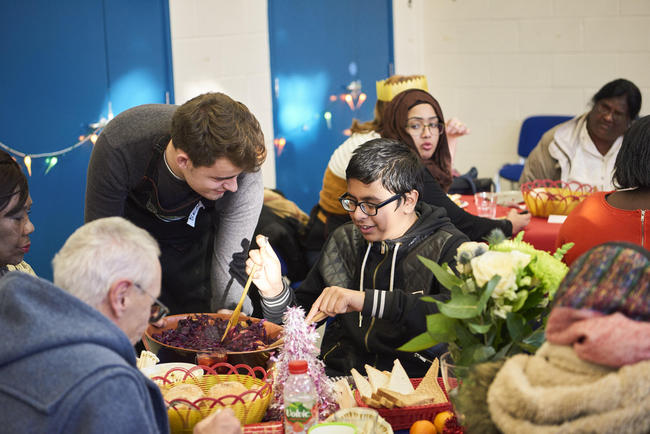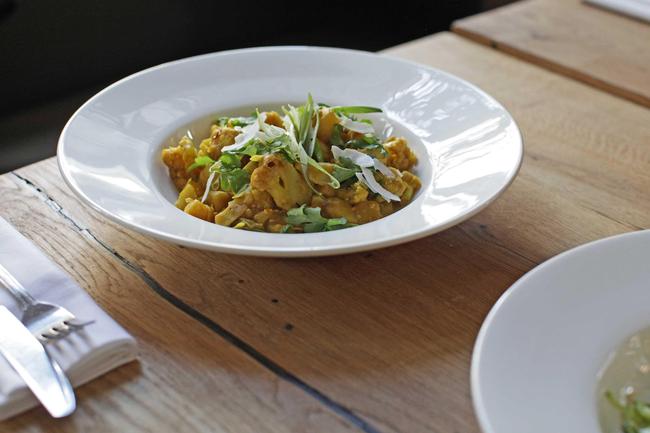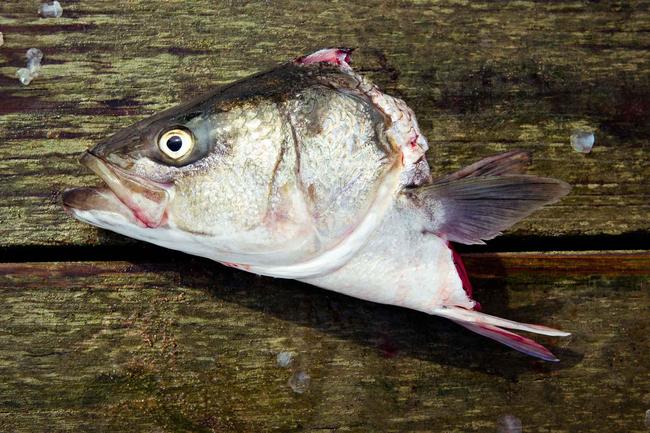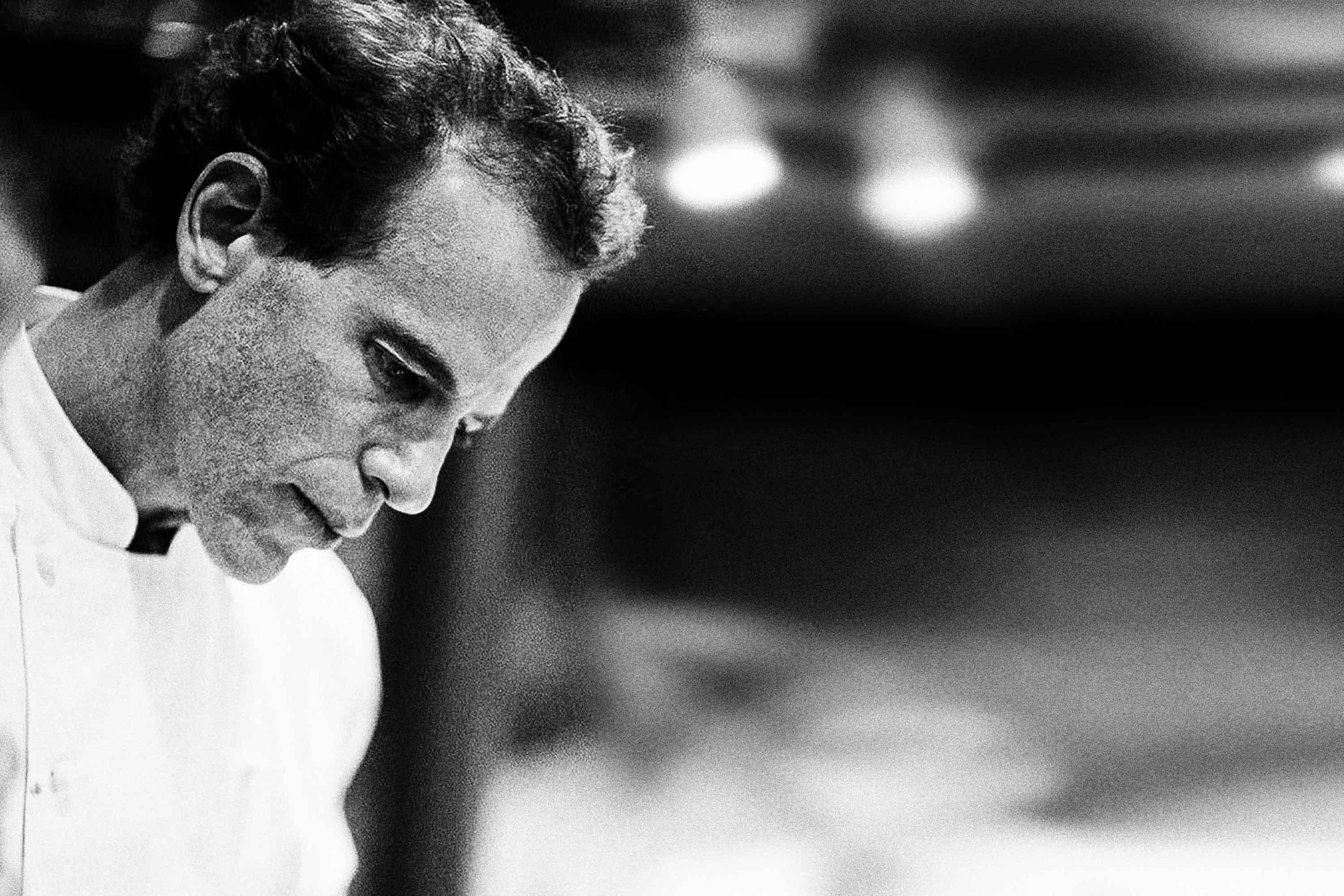
Chef and activist Dan Barber talks food waste, Trump and Selfridges
A burger made from vegetable pulp, served with landfill salad, may not sound like the most obvious meal choice to woo 40 world leaders. But New York chef and food activist Dan Barber is on a mission to change the way the world eats. And when he was invited to cook at the White House, he wanted to highlight the billion tons of food thrown away every year and give some of it a surprising makeover. Dan is an internationally acclaimed chef and leading light in food waste and sustainability, who wants to bring the principles of good farming to the table.
Most recently, his pop-up concept wastED, about reconceiving the waste that occurs at every level of the food chain, sprang up on iconic department store Selfridges’ rooftop – taking his innovative and thought-provoking cooking to a wider audience in London. It has already run successfully in New York. Dan is also an entertainer: his TED Talk ‘How I fell in love with fish’ is a witty reflection on fish farming with a thoroughly inspiring case study. He’s prolific, having worked with Barack Obama during his presidency and was also once named among TIME Magazine’s 100 most influential people. And he’s busy. Dan co-owns the Blue Hill and Blue Hill at Stone Barns restaurants (the latter considered one of the world’s top 50 restaurants) and is a guiding force behind the working farm there. We talked to him about battling food waste and his wider reflections on the future of food sustainability in America and the world.
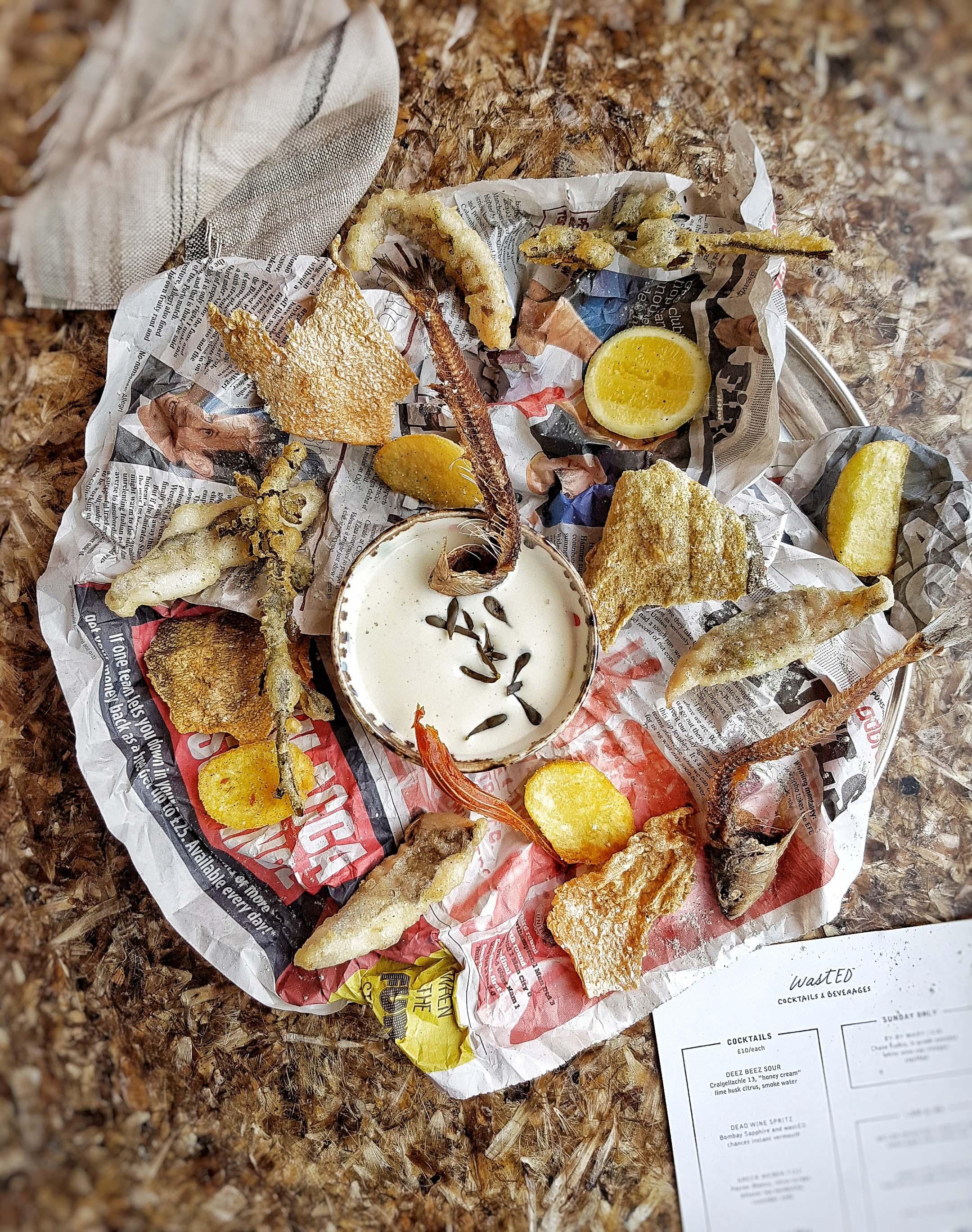
Photo credit: Selfridges
You’ve just done a five-week pop up event at Selfridges. Is sustainability cool right now?
I hesitate to use the word ‘cool’ here, because I don’t think it’s a fad. Over the past decade, we’ve seen the enormous costs of our industrialised food system to our health, communities, and environment. What we’re seeing now is really a paradigm shift, and what makes it so powerful is that it’s rooted in pleasure. Tasting this kind of food – food grown the right way – is a pleasure that people want to come back to.
You’ve cooked for 40 world leaders. Will you be cooking for President Trump?
I don’t think he’ll be knocking down my door asking me to cook for him any time soon.
Based on what we’ve seen, it seems fair to say that this administration is inclined to ignore, or even exacerbate, the ecological realities we face. That’s a sobering thought but maybe an empowering one as well. It means we’re going to need to find new ways to mobilise around these issues.
Can we be hopeful for the future?
What gives me hope for our future is rooted in pleasure. You don’t have to be a chef or an activist; just by being greedy for food with real flavour, we can do enormous good.
You grew up on your grandmother’s farm. What food do you remember?
My first taste of raw milk. My brother and I had just finished our morning chores on the farm, and our neighbour brought out a box of chocolate chip cookies for breakfast. I was 10 years old, so this was like a dream for me. As we started eating, his sister appeared with a steel jug of the morning’s milk: unpasteurised, butter yellow, and still warm. I took a sip and I couldn’t believe the flavour – creamy, sweet, tangy, almost like dewy pasture, and totally astonishing.
What do you think about children growing up thinking chickens start life breadcrumbed in a freezer aisle?
That connection to where our food comes from is something that’s been lost over the past 50 years. And that’s our challenge moving forward. How do we get people, kids especially, to understand the kind of recipe that begins in the field?
Photo credit: Jørn Tomter
Have you seen evidence of businesses adopting a more ecological model?
For wastED London, we partnered with dozens of suppliers throughout the food chain, and all of them were thinking along those lines. We saw that both on the artisanal scale (with, say, E5 Bakehouse, a London bakery which was milling and celebrating local organic flours) to a giant supermarket chain like Tesco, which has piloted a whole programme to combat food waste. I think increasingly companies are seeing that the ecological and the economical don’t have to be competing ideals.
Why was now the right time to do wastED?
In the past several years the idea of the gourmet meal has been turned on its head. Many of the best chefs in the world are no longer glorifying ingredients like foie gras and filet mignon on their menus, in part because those things aren’t that interesting to cook. Instead they are celebrating vegetables, grains and secondary cuts of meat, and creating menus that are very specific to a place. wastED is, in a way, an extension of that idea: trying to create a more holistic way of eating that reflects the entirety of a landscape. The hope is to find culinary opportunity in ingredients that would otherwise be left behind.
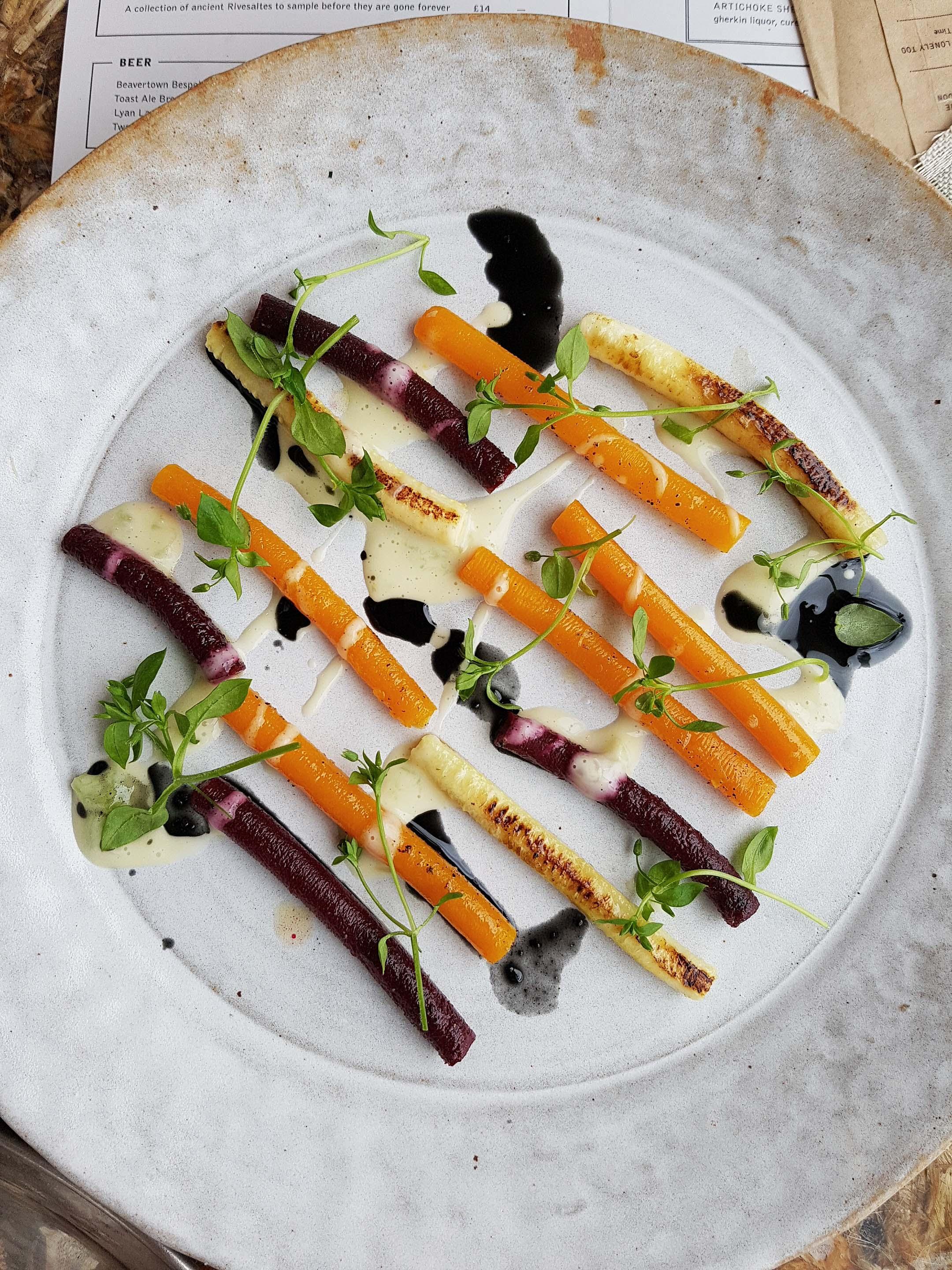
Photo credit: Selfridges
What dish at wastED were you most excited by?
We worked with a large retailer that sells vegetable ‘noodles’ made from spiralised carrots, beets, sweet potatoes, and squash. It turns out this culinary trend produces a particular kind of waste: piles of perfectly cylindrical vegetable cores, which usually get composted. We prepared the cores in a few different ways (pickled, blanched, roasted), and then served them with a play on British salad cream made from aquafaba – the liquid drained from a can of chickpeas.
Selfridges was last year given the title of world’s best sustainability campaign by a department store at the Global Department Store Summit. The award recognised Selfridges’ innovative approach to corporate social responsibility with its ‘Buying better, inspiring change’ initiative. The accolade also hails its big strides in carbon and water reduction and waste management.
Header picture photo credit: Daniel Krieger

